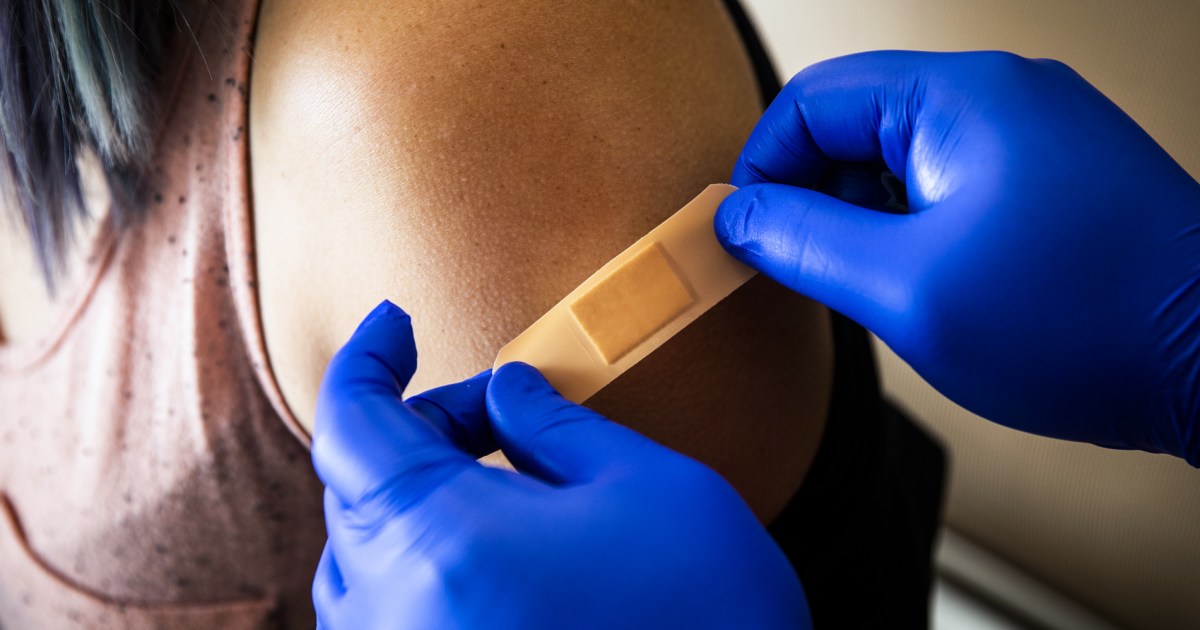Covid vaccines continue to provide significant protection against severe illness and fatalities, particularly among individuals aged 65 and older. However, the benefits for younger adults are less definitive, according to a comprehensive new study involving veterans.
Conducted by researchers from the VA St. Louis Healthcare System, the study reviewed data from nearly 300,000 veterans. Findings indicated that last season’s Covid vaccine decreased the likelihood of emergency room visits by 29%, hospitalizations by 39%, and deaths by 64% across all age groups. By combining these outcomes, overall vaccine effectiveness was calculated at 28%, placing it on par with the annual flu shot, which offers between 30% to 60% protection against severe illness and mortality.
The detailed research, which appeared in the New England Journal of Medicine, analyzed records from the Department of Veterans Affairs. Approximately 164,000 participants received either the Moderna or Pfizer mRNA Covid vaccine alongside a flu shot last fall, while around 130,000 received only the seasonal flu vaccine. Participants were monitored for six months to assess the Covid vaccine’s effectiveness in preventing emergency room visits, hospitalizations, and deaths.
While the investigation showed that vaccinations afforded some protection across ages, the benefits were most pronounced in older adults and those with preexisting health issues, such as heart or lung diseases. Specifically, for individuals under 65, the Covid vaccines provided roughly 27% protection against emergency room visits, hospitalizations, or death. In contrast, the vaccine’s effectiveness approached 40% for those aged 65 and older.
The researchers opted not to comment on their findings. Dr. Michael Mina, an immunologist and former epidemiology professor at the Harvard T.H. Chan School of Public Health, reflected on the study’s conclusions, describing the benefits of the Covid vaccines as “pretty modest,” a realization that did not come as a surprise to him.
The study has its limitations; participants were grouped only into broad categories: ages 65-75, over 75, and under 65. Dr. Mina suggested that a more granular breakdown of these groups would have clarified whether a healthy 25-year-old would benefit from receiving a Covid booster.
“Each person in certain risk categories, especially the younger individuals, should have a discussion with their doctor,” Mina advised. “Do they have heart disease? Do they have chronic lung disease? Have they been a long-term smoker?”
Bill Hanage, a Harvard epidemiology professor, noted that with widespread immunity acquired through vaccination and previous Covid infections, determining vaccine effectiveness has become increasingly challenging. Nonetheless, he expressed satisfaction in observing that some level of protection persists across all age groups. “The core message of this is that even now, with all of this vaccine-induced immunity and convalescent immunity floating around, there is still a measurable benefit,” he stated.
Michael Osterholm, an infectious disease specialist and director of the Center for Infectious Disease Research and Policy at the University of Minnesota, praised the study’s design and was heartened by its findings. “As an individual who is older, I would very willingly get my booster dose of this vaccine if I could reduce the chance of dying from Covid by 64%,” he commented.
The effectiveness of the vaccine was shown to diminish significantly over the six-month period, consistent with earlier research. The shots yielded a prevention rate of 18 emergency room visits, 7 hospitalizations, and 2 deaths for every 10,000 vaccinated individuals. This slight difference may reflect the reduced severity of contemporary Covid infections, according to the researchers.
However, Dr. Peter Chin-Hong, an infectious disease physician at the University of California, San Francisco, cautioned that a surge in cases during the winter could still have a substantial societal impact. “If you multiply by millions of people, even those individual-level differences that might be modest would be translating into large numbers of people that would otherwise potentially strain the health system,” Chin-Hong noted.
The study’s results align with updated recommendations from the Centers for Disease Control and Prevention (CDC), which advocate for Covid vaccinations for individuals aged 65 and older, advising them to consult with their healthcare providers before proceeding.
Despite these findings, confusion persists regarding the Covid vaccine recommendations. People younger than 65 are not prohibited from receiving vaccinations; however, the CDC has indicated that the risk-benefit ratio for those under 65 is particularly favorable for those at an elevated risk of severe illness.
Officials from the Food and Drug Administration, including Dr. Marty Makary, have emphasized that more data is needed to ascertain the advantages of Covid vaccination for young, healthy adults.
Hanage expressed concern that the current messaging surrounding vaccines could adversely affect older, more vulnerable populations. “The message which is coming out at the moment is not helping vaccination, even in the older age groups, which is already way, way too low,” he remarked. According to CDC statistics, less than half of adults aged 65 and older receive updated Covid vaccinations.
“Nobody would disagree that it’s more important by far to ensure that people who are over 65 have access to vaccines,” Hanage concluded.
Chin-Hong advised young, healthy individuals who inquire about booster shots to seek guidance from their healthcare professionals, echoing the necessity of personalized medical discussions.






